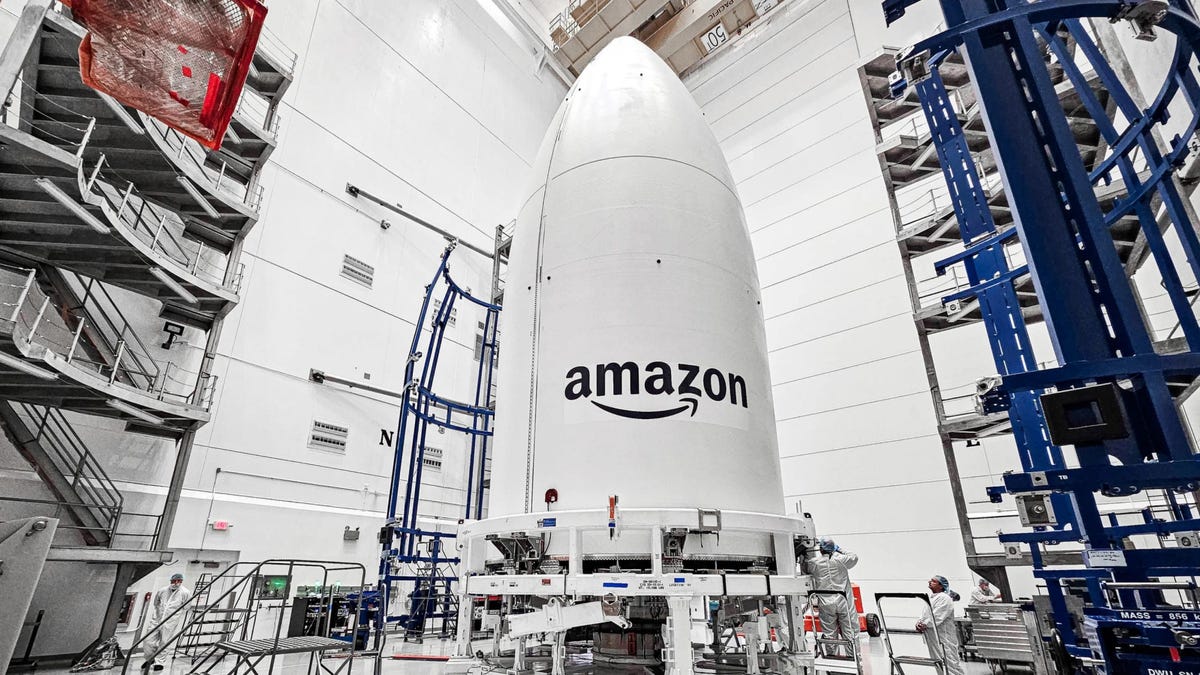
Amazon, known for its speedy delivery to your doorstep, has faced delays in deploying its internet satellites into orbit, prompting the Jeff Bezos-led company to form an unexpected partnership with its rival SpaceX.
Well, we kinda saw this coming, but it’s now confirmed that Jeff Bezos and Elon Musk will be collaborating on a project. Amazon has contracted SpaceX for three launches to deliver its Project Kuiper satellites into low Earth orbit. These launches, slated to begin in mid-2025, will be carried out using SpaceX’s trusty Falcon 9 rocket.
Advertisement
It’s an eye-opening move for at least two reasons. Project Kuiper, Amazon’s satellite broadband network in low Earth orbit, is set to directly compete with SpaceX’s Starlink, while Amazon’s owner, Jeff Bezos, also owns Blue Origin, a space company that has yet to achieve orbit, only reaching suborbital levels with its New Shepard launch vehicle for space tourism. Amazon senior vice president Dave Limp foreshadowed this move, stating last year, “We are open to talking to SpaceX. You’d be crazy not to given their track record here.”
Advertisement
Bezos and SpaceX CEO Elon Musk have a history of not liking each other very much, but there are some compelling drivers behind this seemingly unholy alliance. Blue Origin’s New Glenn heavy-lift rocket has experienced delays, with its inaugural flight scheduled for next year. What’s more, Amazon is under pressure from a Federal Communications Commission mandate; FCC’s 2020 authorization order requires Amazon to launch half of its 3,236 Project Kuiper satellites by 2026 and the remainder by 2029 to maintain its license. Additionally, Amazon is dealing with pressure from shareholders, stemming from a recent lawsuit that criticized it for overlooking SpaceX, despite its status as the leading launch provider.
Advertisement
To facilitate its satellite deployment, Amazon has secured 77 heavy-lift launches from various providers, including Arianespace, United Launch Alliance, and Blue Origin. The new deal with SpaceX is intended to “offer even more capacity to support our deployment schedule,” Amazon explained in a press release.
Project Kuiper is gaining momentum, with Amazon having launched two prototype satellites, KuiperSat-1 and KuiperSat-2, on a ULA Atlas V rocket on October 6, 2023. These satellites are successfully operating in orbit, paving the way for full-scale deployment starting in the first half of 2024 and early customer pilots in the latter half of the same year.
Related article: Amazon Prepares to Challenge SpaceX’s Starlink With Maiden Satellite Launch
Amazon’s foray into the satellite broadband market, however, faces stiff competition from SpaceX’s Starlink, which currently operates over 5,000 satellites. Both companies aim to provide global broadband access, with Starlink targeting direct consumers and Project Kuiper planning to serve both individual customers and businesses.
Advertisement
For more spaceflight in your life, follow us on X (formerly Twitter) and bookmark Gizmodo’s dedicated Spaceflight page.
Services Marketplace – Listings, Bookings & Reviews